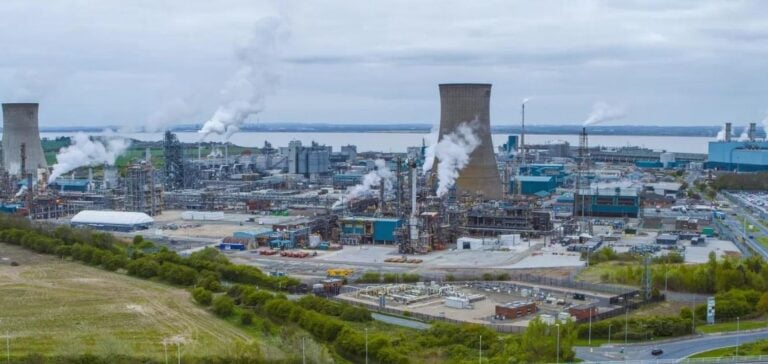Norwegian company Equinor has announced the postponement of its final investment decision for its proposed 600 MW H2H Saltend blue hydrogen plant in the UK to 2027. This decision comes after the project failed to be selected as part of the UK government’s Track 1 program for sequencing CCUS (carbon capture, utilization and storage clusters) in 2023. Dan Sadler, Equinor’s vice-president for low-carbon solutions, pointed out that this decision depended on the approval of the CO2 pipeline system for the Humberside region, part of the East Coast Cluster. At present, none of the East Coast Cluster projects in Humberside has received support under Track One, creating major uncertainty for the H2H Saltend project.
Uncertainties of the CO2 Pipeline
Sadler explained at the FT Hydrogen Summit in London that
“the Humber is a bit isolated until the government allows the Northern Endurance Partnership to take an IDF on that pipeline system.”
According to him, the H2H Saltend project will struggle to take an IDF before 2026-2027 because of this uncertainty. The NEP (Northern Endurance Partnership) is the operator of the CO2 transport and storage system planned for the East Coast Cluster. The Endurance CO2 storage site could hold up to 450 million tonnes of CO2, according to NEP.
Competitive Projects in Teesside
The projects supported under Track 1 are all in Teesside, including BP’s 1.2 GW H2Teesside blue hydrogen plant, the Net Zero Teesside Power project – a joint venture between BP and Equinor – and BOC’s Teesside Hydrogen CO2 Capture project. Sadler also pointed to the uncertainty caused by the government’s lack of clarity over the sequencing and extension of CO2 transport and storage to the Humber, creating confusion among issuers and anxiety among investors.
Political impact
The situation could be further influenced by the general elections scheduled for July 4. A delay in the final decision could postpone investment decisions forblue hydrogen and CCUS projects in the East Coast Cluster and HyNet until later this autumn. Sadler expressed concern that a significant delay or cancellation could cause companies to redirect their decarbonization investments to other parts of the world. However, he noted that informal discussions with the Labor Party, which currently leads in the polls, were encouraging.
Future prospects
The cost of producing blue hydrogen by autothermal reforming was estimated by Platts, a division of S&P Global Commodity Insights, at 2.12 GBP/kg, including capex, CCS and carbon costs, based on the previous month’s gas prices. In February, Equinor received planning permission for its planned plant and chose Johnson Matthey’s LCH blue hydrogen technology for the project.
Current funding uncertainties and political obstacles could significantly influence the future of blue hydrogen in the UK. The next government’s ability to bring these projects forward will be crucial to ensuring the continuity of international investment and the achievement of decarbonization targets.






















